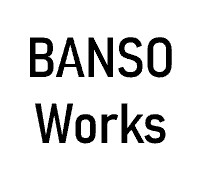留学のための英語面接で聞かれそうな質問10選と対策・注意点とは

海外留学前には、留学先の学校や、事前にVISA取得為、出身元の学校など、様々な英語面接の機会があるでしょう。この面接に際しては、留学だからこそ、しっかり固めておく質問があります。以下10個の質問に対してしっかり回答を準備できているでしょうか?留学のための英語面接で聞かれそうな質問10選を挙げていきましょう。
留学のための英語面接で聞かれそうな質問10選と解答例
- Why do you want to study abroad?
- 対策: 異文化体験や言語スキルの向上、特定の学問分野での専門知識の習得など、自分の具体的な目的や動機を述べます。
- 解答例1: キャリア向上に焦点を当てる
- "I want to study abroad to enhance my career prospects and gain a global perspective in my field. Studying in an international environment will allow me to learn from diverse perspectives, improve my language skills, and build a network with professionals and peers from around the world. I believe this experience will make me more competitive and well-rounded in the global job market."
- 解答例2: 専門分野の知識拡大を重視する
- "My primary reason for studying abroad is to deepen my knowledge in [specific field]. The [country/university] offers advanced courses and research opportunities that are not readily available in my home country. By studying there, I aim to gain cutting-edge knowledge and practical experience that will help me contribute to advancements in this area."
- 解答例3: 文化交流と視野の広がりを強調する
- "I want to study abroad to immerse myself in a new culture and broaden my worldview. Living in a different country will help me develop adaptability and a better understanding of cultural diversity. These experiences will not only enrich my personal growth but also prepare me to work effectively in a globalized environment."
- Why did you choose this country/school/program?
- 対策: その国や学校、プログラムの特長や魅力を調べ、自分の興味やキャリア目標にどのように合致しているかを説明します。
- 解答例1: 学問的な理由
- "I chose this country and program because of its strong reputation in [your field of study]. The [university/school] offers specialized courses and research opportunities that align perfectly with my academic interests and career goals. I believe that the cutting-edge resources and expert faculty here will provide me with the best platform to excel in my field and make meaningful contributions."
- 解答例2: カルチャーと国際的な視野を重視
- "I selected this country because of its rich cultural heritage and its global influence in [specific industry or field]. Studying at [university/school] will allow me to not only receive top-tier education but also immerse myself in a dynamic, multicultural environment. I believe this will give me valuable perspectives that will help me navigate the international job market in the future."
- 解答例3: プログラムの特色を強調
- "I chose this program because it offers a unique combination of [specific elements of the program, such as practical experience, internships, study-abroad opportunities, or industry connections]. I was particularly impressed with the curriculum’s balance between theoretical learning and hands-on application, which I believe will provide me with the skills necessary for success in my future career."
- What are your academic goals and how will studying abroad help you achieve them?
- 対策: 具体的な学問的目標を述べ、それが留学によってどのように達成できるかを説明します。特に留学先のプログラムや施設がどのように役立つかを強調します。
- 解答例1: 専門知識の深化
- "My academic goal is to deepen my knowledge in [specific field], particularly in areas such as [specific topics or subfields]. By studying abroad, I will have access to advanced resources, diverse perspectives, and specialized courses that aren't available in my home country. This will allow me to build a strong foundation in my area of interest and make significant contributions to the field."
- 解答例2: グローバルな視野の習得
- "My academic goal is to develop a global perspective in [field of study]. Studying abroad will expose me to different teaching styles, cultural approaches to learning, and new methodologies. This international exposure will allow me to understand global trends and challenges, which are essential for pursuing a successful career in today’s interconnected world."
- 解答例3: 実践的なスキルの習得
- "My goal is to combine theoretical knowledge with practical experience in [field]. The program abroad offers opportunities for internships, research projects, and real-world applications that will help me build practical skills. This hands-on experience will be invaluable for my academic and professional development, allowing me to apply what I learn in a meaningful way and prepare for future career challenges."
- How do you plan to handle the challenges of living in a foreign country?
- 対策: 異文化適応のための具体的な計画や、過去の経験を交え、ストレスや文化的な違いにどのように対処するかを説明します。
- 解答例1: 柔軟性と適応力を強調
- "I plan to handle the challenges of living in a foreign country by staying flexible and open-minded. I know that cultural differences, language barriers, and adjusting to a new environment will require patience and adaptability. I will make an effort to learn the local language and customs, seek support from fellow international students, and approach challenges as opportunities to grow both personally and academically."
- 解答例2: 支援ネットワークを活用
- "To manage the challenges of living abroad, I plan to build a strong support network. I will connect with other students, both local and international, and reach out to university support services for guidance. I also plan to participate in social and cultural activities to immerse myself in the community. By staying proactive and seeking help when needed, I am confident I can overcome any obstacles."
- 解答例3: ポジティブな態度で取り組む
- "I believe that challenges can be turned into valuable learning experiences, and I plan to approach them with a positive mindset. I will embrace the cultural differences, try to solve problems on my own, and take full advantage of the resources available at the university. Additionally, I’ll make sure to stay in touch with my family and friends back home to maintain emotional support while I adapt to my new environment."
- Tell me about your academic background and achievements.
- 対策: 学歴や成績、特に優れた成果やプロジェクト、受賞歴などを具体的に述べ、自分の学問的な能力をアピールします。
- 解答例1: 学問的な成果と強調する
- "I have always been passionate about [your field of study], which led me to pursue a [degree level, e.g., Bachelor’s] in [subject] at [university name]. Throughout my studies, I maintained a high GPA, and I received the [name of award/scholarship] for my academic excellence. One of my proudest achievements was completing a research project on [topic], which was well-received by both my professors and peers. This experience has deepened my interest in [specific aspect of the field], and I’m eager to further my studies in this area."
- 解答例2: 実務経験も交えた学歴の説明
- "My academic background includes a [degree] in [field] from [university name]. During my studies, I completed a [mention any internships, research projects, or part-time work] that allowed me to apply theoretical knowledge to real-world situations. One notable achievement was my thesis on [topic], which was selected for presentation at [conference/event]. These experiences have prepared me to pursue further education abroad, where I can build on what I’ve learned and gain new perspectives."
- 解答例3: 特定の成果を強調
- "I completed my [degree] in [field] at [university name], where I developed a strong foundation in [specific subject]. Among my achievements, I am especially proud of my involvement in a group project that won [award/honor] for its innovative approach to [subject]. Additionally, I earned a certification in [related subject or skill], which further enhanced my knowledge. I am excited to build on this solid academic foundation by studying abroad and gaining more specialized skills."
- How do you plan to finance your studies abroad?
- 対策: 奨学金や家族の支援、アルバイトなどの具体的な財政計画を説明し、経済的に自立していることを示します。
- 解答例1: 自己資金と奨学金を組み合わせる
- "I plan to finance my studies abroad by using a combination of personal savings and scholarships. Over the past few years, I have saved a portion of my income to cover part of the tuition and living expenses. Additionally, I have applied for several scholarships, including [name of scholarship], which I hope will help offset some of the costs. I am also considering part-time work opportunities while studying, in accordance with the regulations of the country, to further support myself."
- 解答例2: 親からのサポート
- "My family has generously agreed to support me financially while I study abroad. My parents understand the importance of this opportunity and are committed to helping me cover tuition fees, accommodation, and living expenses. In addition to family support, I am also applying for scholarships and grants to reduce the financial burden. I have carefully budgeted my expenses to ensure that I can manage my finances effectively while pursuing my studies."
- 解答例3: 奨学金と学費の分割払い
- "I have secured a scholarship that will cover a significant portion of my tuition fees. To manage the remaining costs, I plan to apply for additional financial aid and use personal savings. I am also exploring options for installment payments for tuition, which would allow me to manage the financial burden more effectively. Additionally, I plan to reduce living expenses by finding affordable housing and budgeting wisely during my time abroad."
- What do you know about the culture of the country you are going to?
- 対策: 留学先の国の文化や習慣について調べ、自分がどのようにその文化に適応するつもりかを説明します。
- 解答例1: 社会的な特徴と価値観
- "I know that the culture of [country] is deeply rooted in [specific cultural aspects, such as family values, respect for authority, or individualism]. For example, [mention any relevant cultural norms or traditions, such as strong family ties, importance of respect in communication, etc.]. I also understand that [country] places a high value on [work-life balance, education, punctuality, etc.], and I am excited to experience these aspects firsthand while living and studying there."
- 解答例2: 日常生活とマナー
- "I’ve researched that the culture in [country] places a lot of emphasis on [describe aspects like politeness, hospitality, or social etiquette]. For instance, [country] has a unique way of greeting people, such as [specific custom], and it’s common to show respect by [specific gesture or action]. I’m also aware that [country] has a strong tradition of [e.g., outdoor activities, cuisine, or festivals], and I look forward to participating in these cultural experiences during my time there."
- 解答例3: 歴史と文化的な影響
- "I understand that [country] has a rich history that has greatly influenced its current culture. For example, [mention important historical events or cultural traditions]. I am particularly interested in how [specific elements of culture, like art, literature, or food] shape daily life in [country]. I’ve learned that [country] has a vibrant cultural scene with [mention specific events or aspects like traditional festivals or modern cultural trends], and I am eager to explore this while living there."
- What do you hope to gain from this experience?
- 対策: 学問的な知識だけでなく、異文化理解や自己成長、将来のキャリアにどのように役立つかを具体的に述べます。
- 解答例1: 学問的成長と専門知識の深化
- "I hope to gain a deeper understanding of my field of study through exposure to new theories, methodologies, and research approaches that may not be available in my home country. This experience will allow me to expand my knowledge, refine my skills, and become better equipped to contribute to the global conversation in my field."
- 解答例2: 国際的な視野と異文化理解
- "Through this experience, I hope to broaden my global perspective by immersing myself in a new culture and interacting with people from diverse backgrounds. I believe this will help me develop the cultural competency needed to work in an increasingly globalized world, and foster a greater appreciation for different ways of thinking and living."
- 解答例3: 自己成長と挑戦への適応
- "I hope to challenge myself by stepping out of my comfort zone, navigating the challenges of living and studying abroad, and becoming more independent. I believe this experience will enhance my problem-solving skills, adaptability, and resilience, all of which are crucial for both my personal and professional growth."
- How do you handle stress and pressure in academic settings?
- 対策: ストレス管理の具体的な方法(例:時間管理、リラクゼーションテクニックなど)を述べ、実際に効果的だった経験を話します。
- 解答例1: 計画的な時間管理
- "I handle stress and pressure in academic settings by staying organized and planning ahead. I break down large tasks into smaller, more manageable steps and set realistic deadlines for myself. When I feel overwhelmed, I prioritize tasks and focus on one thing at a time. I also use tools like calendars and to-do lists to stay on track, ensuring I meet my deadlines without feeling stressed."
- 解答例2: リラックス法とマインドフルネス
- "When I face stress in academic settings, I practice relaxation techniques such as deep breathing, meditation, or taking short breaks to clear my mind. I find that stepping away from my work for a brief moment helps me return to my tasks with a clearer and more focused mindset. I also make sure to maintain a healthy work-life balance to prevent burnout."
- 解答例3: サポートの活用と柔軟なアプローチ
- "I handle academic stress by seeking support when needed. If I am struggling with a particular subject, I reach out to my professors, classmates, or academic advisors for help. I also maintain a flexible approach by being open to adjusting my study methods if I find one isn’t working well. By staying proactive and utilizing available resources, I am able to manage pressure effectively."
- Do you have any questions for us?
- 対策: プログラムの詳細や学生サポート、現地での生活などについて具体的な質問を用意し、興味と意欲を示します。
- 解答例1: 学びの機会とサポート
- "I’m very interested in the resources available to international students at your university. Could you tell me more about the academic support services, such as tutoring or study groups, that are available for students? Also, are there any specific programs or workshops designed to help international students integrate into campus life and culture?"
- 解答例2: カリキュラムと特定の研究機会
- "I would love to learn more about the opportunities for research or internships in my field of study. Are there any specific research projects or collaborations with local industries that students can participate in? How does the university support students who want to gain hands-on experience during their studies?"
- 解答例3: 留学生の生活とネットワーキングの機会
- "I'm curious about how the university helps international students with adjusting to life in the local area. Are there any student organizations or networks for international students that help with cultural exchange or provide opportunities to meet people from diverse backgrounds?"
これらの質問に対して準備をし、練習することで、留学の面接に自信を持って臨むことができます。
英語面接完全マニュアルで準備する
➡見てみる 英語面接完全マニュアル
まとめ
英語面接での受け答えの事例と、心構えを整え、ぜひ、前向きに英語面接に臨みましょう!




